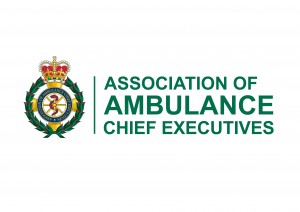 The Association of Ambulance Chief Executives (AACE) has welcomed the findings of the Health Select Committee inquiry into pressures on the emergency and urgent care system (published today) seeing them as a major acknowledgement of the excellent patient care being delivered by NHS ambulance services.
The Association of Ambulance Chief Executives (AACE) has welcomed the findings of the Health Select Committee inquiry into pressures on the emergency and urgent care system (published today) seeing them as a major acknowledgement of the excellent patient care being delivered by NHS ambulance services.
Martin Flaherty OBE, Managing Director of AACE says:
This is an excellent report that really gets to the heart of some of the key problems facing the emergency and urgent care system today. The ambulance service plays a highly innovative role in terms of providing the most appropriate care for patients, where and when they need it most, which contributes significantly to easing pressures on a system that is clearly finding it difficult to cope with the high levels of demand it faces in its present form. We see today’s report as an acknowledgement of the excellent work the service is already doing and as confirmation that we have an even larger role to play in improving the system in the future.”
The comments were supported by AACE Chair Anthony Marsh who gave key evidence in person to the Health Select Committee in June 2013.
The report of the findings, which is available here, says that ultimately, the ambulance service has the potential to coordinate other elements of the emergency and urgent care system and lead integration of services. Changing the staff mix, reforming tariffs and ensuring access to patient information are important elements of a process of developing ambulance services in to care providers in their own right.
Other key points for the ambulance service are as follows:
Ambulance Services:
- Should be regarded as a care provider and not simply a service that readies patients for journeys to hospital
- Increasing the number of fully qualified paramedics can help achieve this
- Skilled paramedics can treat more patients at scene, reduce A&E conveyances and make difficult judgements about when to use nearest A&E as opposed to a specialist unit
- The precise relationship between the development of more highly skilled ambulance crews and conveyance rates should be thoroughly investigated by NHS England to help ambulance trusts further develop their workforces
- There is a lot more that can be done to help ambulance services in improving their provision of care – Urgent Care Boards need to ensure access to key patient data – such information can be crucial in putting together a swift and accurate assessment of a seriously unwell patient.
A PDF version of the report is also available here.























